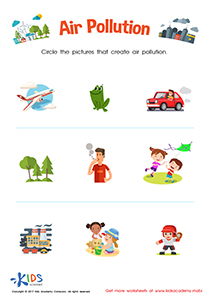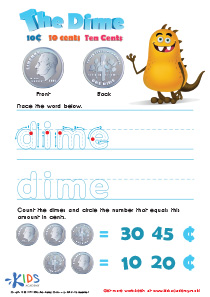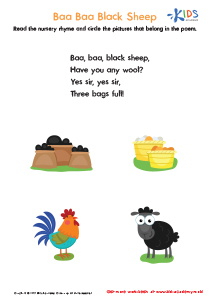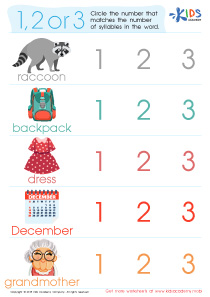Normal Common Vocabulary Quizzes for 4-Year-Olds
2 results
2 filtered results
Clear all filters2 filtered results
-
From - To
Unveil the magic of words with our "Normal Common Vocabulary for 4-Year-Olds" interactive assessment quizzes! Designed specifically for the curious minds of young learners, these quizzes not only evaluate their understanding of everyday vocabulary but also offer immediate feedback to reinforce learning. Each question is crafted to be age-appropriate, ensuring a fun and engaging experience that boosts confidence and enriches language skills. Perfect for parents and educators looking to track progress, our quizzes are the ultimate tool in supporting the developmental milestones of 4-year-olds. Dive into our vocabulary adventure and watch your child's communication bloom!
In the early stages of development, children are like sponges, absorbing information from their environment and experiences with an unparalleled eagerness to learn. For 4-year-olds, language is a pivotal arena of growth, serving as the foundation for effective communication, cognitive development, and academic success. This is where our Normal interactive quizzes on Common Vocabulary come into play, offering a tailored and engaging approach to expanding the language skills of young learners.
Understanding and using normal common vocabulary appropriately is essential for 4-year-olds as they prepare for more structured learning environments. Our quizzes are designed specifically with this age group in mind, focusing on the typical range of words that children at this developmental stage are expected to understand and begin to use. These vocabulary words are not just random selections; they are carefully curated to reflect the typical daily experiences, emotions, actions, and objects familiar to a 4-year-old child. This relevance ensures that the learning is not only effective but also meaningful.
The interactive nature of our quizzes adds an element of fun to learning. We all know that children learn best when they're engaged and enjoying themselves. Our quizzes use colorful animations, friendly characters, and interactive elements to keep children interested and motivated to learn. This interactive approach encourages active participation, which is crucial for learning. It transforms the experience from passive listening to an active exploration of words, their meanings, and their applications.
Moreover, these quizzes are designed to be intuitive for children, allowing them to navigate through questions with minimal assistance. This independence in learning fosters self-confidence and a sense of achievement when they successfully understand and remember new words. It is a positive reinforcement loop that encourages them to keep learning and exploring language.
Feedback is another crucial component of our quizzes. Immediate, constructive feedback helps children understand their mistakes and learn the correct usage of words in a supportive environment. This feedback is not just about right or wrong answers; it provides explanations and examples, making it a learning moment that extends beyond the quiz itself.
Parents and educators find value in our Normal interactive quizzes on Common Vocabulary for 4-Year-Olds as well. They serve as a tool to gauge a child's vocabulary comprehension and retention, offering insights into the child's language development. Furthermore, these quizzes can be a source of inspiration for adults, providing ideas for conversations and activities that can further support vocabulary growth in daily life.
In conclusion, our Normal interactive quizzes on Common Vocabulary are more than just educational tools; they are stepping stones for 4-year-olds to build a strong language foundation. By engaging children in a fun, interactive, and meaningful learning process, we not only help them expand their vocabulary but also foster a love for learning that will benefit them throughout their educational journey and beyond. In doing so, we are not just teaching words; we are opening doors to communication, understanding, and a world of possibilities for every child.











